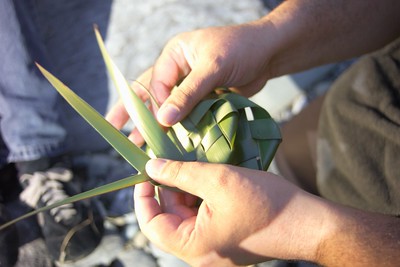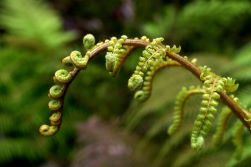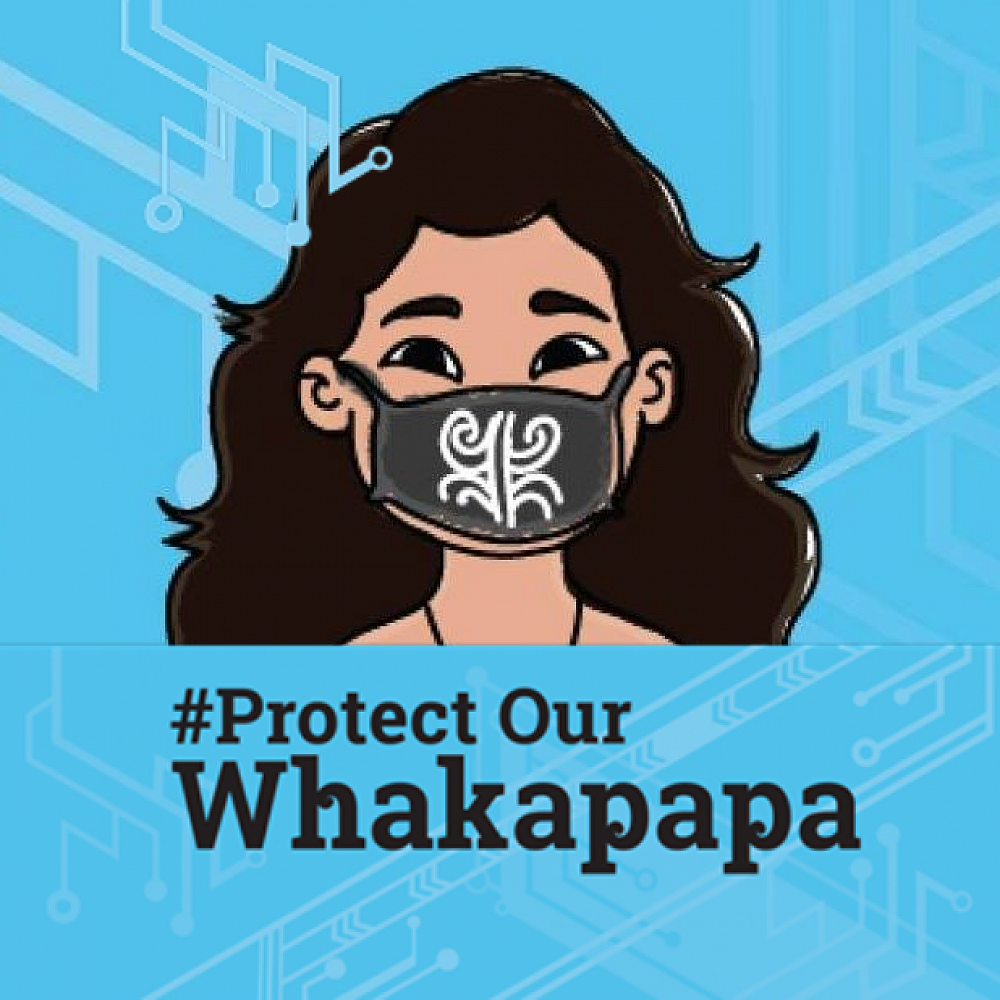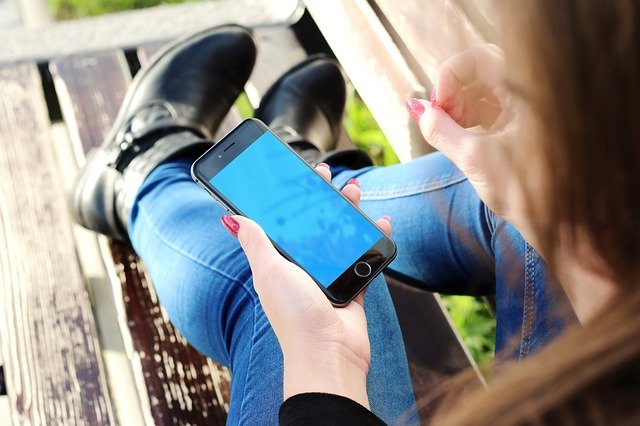Ngā kohinga kōrero me ngā uiui hei tautoko i ngā whānau e noho pāhekeheke ana
Conversations, interviews & commentaries to support whānau living in these extraordinary times
These pages are not being updated. Announced in September 2021, Te Puni Kōkiri is providing a one-stop source of information on COVID, the vaccine roll-out and where to go for support for Te Ao Māori.
Please check our archive page for earlier conversations, interviews and commentaries supporting our whānau.
COVID-19
The August outbreak of COVID-19 was the final straw for many small businesses still struggling to recover from the first lockdown. While some faltered, for others it has been an opportunity to forge a new way forward. The first lockdown saw the creation of online groups supporting Māori made crafts and services. These groups helped to support Mum and Dad businesses get their talents out to a bigger audience – check out our Archives for the story of Buy Māori Made. This new story is about a couple who are making kōpare (masks) – Marae has this story on Sean Rasmussen (Ngāti Porou), his wife and their start-up company, Mā Innovations.
Andrea Fromm speaks with Deb Te Kawa, one part of the duo responsible for ‘Raising waka, not just yachts.’ In their own words Amohia Boulton and Deb Te Kawa’s paper speaks to how the COVID-19 crisis has reminded us of how underprepared the world was to detect and respond to emerging infectious diseases. It simultaneously revealed how well placed, and effective institutions in Te Ao Māori are in being able to react decisively and positively on behalf of their people.
The Spinoff, in partnership with Te Pūnaha Matatini, have produced a series of essays examining the effects of COVID-19 in Aotearoa. We know the pandemic exposed the often unseen inequality within our communities, but it also provided innovative, indigenous solutions. Here is the first essay.
Te Ao Māori News is back keeping whānau informed with regular COVID-19 updates and advice.
Keep up to date with health information for whānau from Te Rōpū Whakakaupapa Urutā | National Māori Pandemic Group.
Te Reo Māori
In the build up to Te Wiki o Te Reo Māori, we shared the story of Hiria Cameron and Kat Poi – sisters working in racial equity education, building people’s skill, capacity and knowledge to engage, sustain and deepen conversation about race. This story is from Māori TV. Pop over to Pou Manaaki for some fun ideas and activities designed to help learn Te Reo Māori.
Waiora
Whānau
 Produced by Mahi Tahi Media, Indigenous 100 is a podcast series with Julian Wilcox who speaks with Indigenous Thought Leaders. Te Whare Māori has shared a previous episode with Lisa Tamati, but now you can access all released episodes. From Pania Newton to Kiri Nathan to Stan Walker – Indigenous 100 shares important conversations highlighting Māori success, knowledge and resilience.
Produced by Mahi Tahi Media, Indigenous 100 is a podcast series with Julian Wilcox who speaks with Indigenous Thought Leaders. Te Whare Māori has shared a previous episode with Lisa Tamati, but now you can access all released episodes. From Pania Newton to Kiri Nathan to Stan Walker – Indigenous 100 shares important conversations highlighting Māori success, knowledge and resilience.
'Recovering whakapapa' is a beautiful article by Arihia Latham who writes about how tikanga practice is supporting Māori mothers in a Western system. Written for The Spinoff in partnership with Te Hiringa Hauora, Arihia shares her own journey and those of other wāhine, who are reclaiming traditional ways of being as they bring life into this world.
Māori resilience and community response to COVID-19 has been widely recognised at both a national and international level, but the ability to be responsive is a common theme when exploring Māori communities. RNZ's The Detail has this story on Ngāti Whātua Ōrākei and how they are changing lives for the better.
Qiane Matata-Sipu is the creator and founder of Nuku. Nuku is a movement powered by, made by and made for, indigenous women – mā hine, mō hine, kia hine! Nuku is changing the narrative about wahine Māori.
Meet Pania Tepaiho-Marsh aka Wāhine Toa Hunting who shares her story of returning to ancestral knowledge and learning to feed her whānau by hunting. Pania supports other women to restore their mana and break the cycle of intergenerational trauma by sharing her knowledge so they too can provide for themselves and their whānau. A Loading Docs documentary - Wāhine Warrior.
Tinana
Meet Renee MacDonald (Ngāti Raukawa, Rangitāne, Te Āti Awa), founder of Soul Sisters Kombucha. Kombucha has some amazing health benefits and helps to support ‘healing from the inside out’. Speaking with William Waiirua, Renee shares her story of recovery from methamphetamine addiction and how reconnection with whakapapa and rongoā led to the creation of Soul Sisters Kombucha. WHATTA BEAUTY - find Renee’s story appearing throughout Episode (at 3.10; 10.46; 16.53; 20.11 mins). Jump over to Pou Manaaki and learn how to make your own kombucha.
An oldie but a goodie: Planting Seeds podcast shares the whakaaro of Beez Te Waati from Māori Movement, a health and fitness programme inspired by Atua Māori. Jump over to Pou Manaaki for the link to Māori Movement and try it for yourself.
Hinengaro
Mental Health statistics for Māori have always been challenging in that we know too often the cause of Maori overrepresentation is a direct by-product of colonisation. Data indicates Western practices often fail Māori in that their focus is on one aspect of hauora, ignoring the broader understanding of Māori hauora and a collective Māori identity. The good news is that Māori are creating solutions and tools responsive to Māori needs. From Mahi a Atua to Orokoroa to Hikitia te Hā – there are now many resources for Māori experiencing mental unwellness. Turuki Health Care with Ngarino Te Waati share a kōrero about suicide and Te Karere shares the story of Village – a suicide prevention app currently in clinical trials. Evandah Steadman (Te Whānau-a-Apanui) shares the stories behind his creation.
If you’re feeling anxious, down or a bit overwhelmed you can talk to (or text with) a trained counsellor for free by calling or texting 1737 anytime, 24 hours a day.
Join Tyrone Tangata- Makiri (co-founder of NO SIX and founder of We Can All East), Pāora Puru (co-owner of Whau Cafe and organiser behind Mauri Ora spiritual walks) and Te Aroha Grace (Chief Relationship Officer at Figure Group) with Flava radio host Astley Nathan as they explore what it is to be a Māori man in 2020. NZ Herald has this video.
Community Research offers further exploration of the work of Di and Mark Kopua - Mahi a Atua. Presenters from Te Korowai Hauora o Hauraki, Taima Campbell and Riana Manuel speak to the 2020 launch of Te Kūwatawata ki Hauraki, an immediate indigenous response service for whānau experiencing mental distress, and share how the implementation is making a difference for their staff, whānau, community and services.
Moe Milne (Ngāti Hine), Te Oranga Hinengaro: Mauri tū, Mauri Ora – Michael Naera, Mental Health Foundation of NZ speaks with Whaea Moe Milne about whānau wellbeing.
Wairua
Te Ao Māori News has the story of Poata Watene who utilises ngā Atua in his work within the Hamilton Abuse Intervention Project. Want to know more about our Atua? KIWA Digital has produced a series of graphic novellas, sharing their interpretation of ngā Atua Māori. Available in both Te Reo Māori and English.
Che's Channel - Te Paepae Waho provide a karakia invoking wellness during challenging times.
Recharge your wairua with himene and waiata every Rātapu with Protect our Whakapapa.
Resilience
Stan Walker shares his journey from a childhood of physical and sexual abuse to a place of redemption and hope. Sunday (TVNZ) shares his story.
Rangatahi
Join Judge Becroft, Children’s Commissioner who shares insights on how our tamariki and rangatahi fared during the COVID-19 lockdown and how as a community we can support our tamariki. Community Research presents: Giving voice to tamariki and rangatahi in community organisations.
Join in the celebration of our rangatahi taking our reo to the world stage. Te Ao Māori News has this story on Ngā Hine Pūkōrero, a slam poetry quartet
The NZUSA have released a report about the impact of COVID-19 on tertiary students. Increased anxiety about the future, student debt and increased stress levels are identified as major impacts for our rangatahi. Te Mana Ākonga | National Māori Tertiary Students' Association have also released their findings on the impact of COVID-19 for Māori tauira. While there were many similarities between the two, a key difference aside from digital poverty, was that more than half of the Māori tauira participating in the research, did not feel valued as a student by their institution.
Having to choose between an education or supporting your whānau through financial hardship caused by COVID-19 is a difficult decision but one which many of our rangatahi are having to make. For Māori, whānau is everything and our rangatahi are responding to whānau need by leaving school (and the employment opportunities education brings) to work or stay home and care for younger siblings while their parents work. TVNZ1 Breakfast has this story.
Following along this train of thought is the release of a report, He Awa Ara Rau: A Journey of Many Paths. Te Ao Māori News spoke with Raewyn Mahara about the reality for our rangatahi who are disadvantaged by an English education system which streams Māori into low expectation classes. Raewyn speaks of the possibilities that can be created for our rangatahi by utilising Māori mediums of learning.
Lockdown highlighted and exacerbated difficulties for young Māori students on the wrong side of the digital divide. Addressing rangatahi education: Challenges after COVID-19 is a partnership report between Ngāti Whātua Ōrākei and Koi Tū. The report found a lack of access to suitable digital devices, internet connectivity and quality learning resources during lockdown hindered the learning of rangatahi and tamariki, and negatively impacted their mental health and resilience. If you don’t have time to read the full report, Newsroom provides a summary with 'Digital divide' lays education inequality bare.
Click here to return to the three pou
Click here for Pūranga | Archive (find previous posts here)





